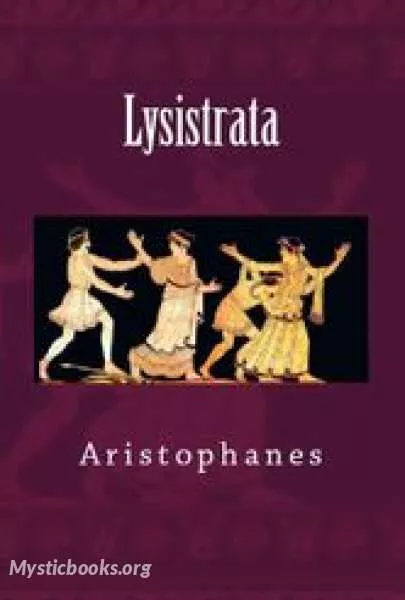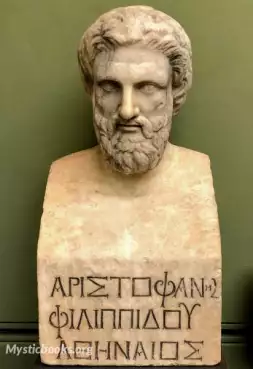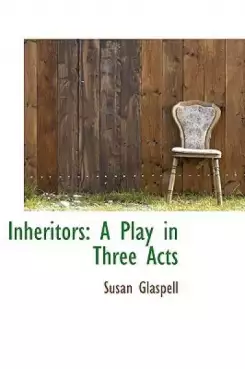
Lysistrata
by Aristophanes
'Lysistrata' Summary
LYSISTRATA
There are a lot of things about us women
That sadden me, considering how men
See us as rascals.
CALONICE
As indeed we are!
These lines, spoken by the Athenian Lysistrata and her friend Calonice at the beginning of the play, set the scene for the action that follows. Women, as represented by Calonice, are sly hedonists in need of firm guidance and direction. Lysistrata, however, is an extraordinary woman with a large sense of individual and social responsibility. She has convened a meeting of women from various Greek city-states that are at war with each other. (There is no explanation of how she manages this, but the satirical nature of the play makes this unimportant.) Soon after she confides in her friend her concerns for the female sex, the women begin arriving.
With support from the Spartan Lampito, Lysistrata persuades the other women to withhold sexual privileges from their menfolk as a means of forcing them to conclude the Peloponnesian War. The women are very reluctant, but the deal is sealed with a solemn oath around a wine bowl, Lysistrata choosing the words and Calonice repeating them on behalf of the other women. It is a long and detailed oath, in which the women abjure all their sexual pleasures, including the Lioness on the Cheese Grater (a sexual position).
Soon after the oath is finished, a cry of triumph is heard from the nearby Acropolis—the old women of Athens have seized control of it at Lysistrata's instigation, since it holds the state treasury, without which the men cannot long continue to fund their war. Lampito goes off to spread the word of revolt, and the other women retreat behind the barred gates of the Acropolis to await the men's response.
A Chorus of Old Men arrives, intent on burning down the gate of the Acropolis if the women do not open up. Encumbered with heavy timbers, inconvenienced with smoke and burdened with old age, they are still making preparations to assault the gate when a Chorus of Old Women arrives, bearing pitchers of water. The Old Women complain about the difficulty they had getting the water, but they are ready for a fight in defence of their younger comrades. Threats are exchanged, water beats fire, and the Old Men are discomfited with a soaking.
The magistrate then arrives with some Scythian Archers (the Athenian version of police constables). He reflects on the hysterical nature of women, their devotion to wine, promiscuous sex, and exotic cults (such as to Sabazius and Adonis), but above all he blames men for poor supervision of their womenfolk. He has come for silver from the state treasury to buy oars for the fleet and he instructs his Scythians to begin levering open the gate. However, they are quickly overwhelmed by groups of unruly women with such unruly names as σπερμαγοραιολεκιθολαχανοπώλιδες (seed-market-porridge-vegetable-sellers) and σκοροδοπανδοκευτριαρτοπώλιδες (garlic-innkeeping-bread-sellers).
Lysistrata restores order and she allows the magistrate to question her. She explains the frustrations that women feel at a time of war when the men make stupid decisions that affect everyone, and further complains that their wives' opinions are not listened to. She drapes her headdress over him, gives him a basket of wool and tells him that war will be a woman's business from now on. She then explains the pity she feels for young, childless women, ageing at home while the men are away on endless campaigns. When the magistrate points out that men also age, she reminds him that men can marry at any age whereas a woman has only a short time before she is considered too old. She then dresses the magistrate like a corpse for laying out, with a wreath and a fillet, and advises him that he's dead. Outraged at these indignities, he storms off to report the incident to his colleagues, while Lysistrata returns to the Acropolis.
Book Details
Authors

Aristophanes
Greece
Aristophanes son of Philippus, of the deme Kydathenaion was a comic playwright or comedy-writer of ancient Athens and a poet of Old Attic Comedy. Eleven of his forty plays survive virtually complete....
Books by AristophanesDownload eBooks
Listen/Download Audiobook
Related books

Rebel of the School by L. T. Meade
Kathleen O'Hara is a spirited young Irish girl who is sent to boarding school in England. She quickly becomes a leader among the other girls, who are...

Dandy Dick by Arthur Wing Pinero
Dandy Dick is a Victorian farce by Arthur Wing Pinero, renowned for its witty dialogue and humorous situations. It follows the antics of a group of ch...

Burial of the Guns by Thomas Nelson Page
This collection of short stories vividly portrays the human toll of the Civil War and its aftermath, as seen through the eyes of those who lived throu...

Shakespeare Monologues Collection vol. 09 by William Shakespeare
This is the ninth collection of monologues from Shakespeare’s plays. Containing 20 parts.

Conqueror Worm by Edgar Allan Poe
'Conqueror Worm' is a dramatic and haunting poem by Edgar Allan Poe. It explores themes of mortality, the fleeting nature of life, and the ultimately...

Inheritors by Susan Glaspell
Inheritors is a four-act play written by the American dramatist Susan Glaspell, first performed in 1921. The play concerns the legacy of an idealist...

Little Bit of Fluff by Walter W. Ellis
Little Bit of Fluff is a classic farce that revolves around a series of comedic misunderstandings and mishaps. The plot hinges on an insurance investi...

Picture-Books In Winter by Robert Louis Stevenson
Picture-Books In Winter is a collection of 26 poems by Robert Louis Stevenson that capture the magic and wonder of winter for children. The poems are...

New Treasure Seekers by E. Nesbit
Oswald, Dora, Dicky, Alice, H.O, and Noel fill their free time with entertainments that don't always turn out as they plan. But whether telling fortun...

The Sacred Fount by Henry James
The Sacred Fount is a novel by Henry James, first published in 1901. This strange, often baffling book concerns an unnamed narrator who attempts to di...
Reviews for Lysistrata
No reviews posted or approved, yet...